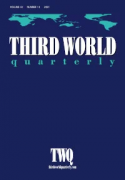A significant theoretical and empirical question underlying much of the literature on post-conflict state building is which institutions offer the best prospect for peace and democracy in divided societies recovering from conflict. This debate is highly relevant for many developing countries. With much invested by third parties in post-conflict reconstruction and a mixed track record of success at best, the question explored by this article is whether consociational institutional designs—widely applied in policy practice and severely criticised in academic discourse—can accomplish the twin goals of peace and democracy in divided post-conflict societies.
Examining the claims of supporters and detractors of consociationalism, this article finds substantial conceptual and empirical evidence that consociational institutions hold significant promise for building democratic states after conflict in divided societies.

